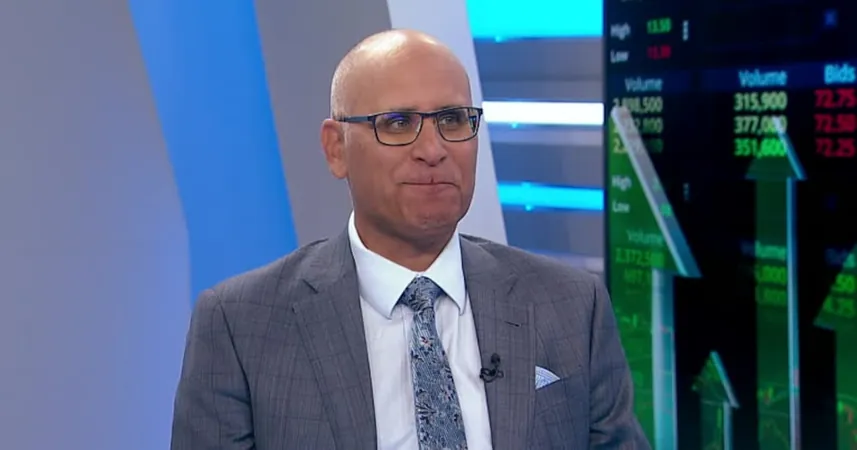
Ukraine-Hungary Tensions Rise Over Pipeline Attack: What You Need to Know
2025-08-24
Author: Jacob
In a dramatic escalation of tensions, Kyiv and Budapest have engaged in a war of words following a Ukrainian strike on Russian oil infrastructure, which has directly disrupted crucial oil supplies through the Druzhba pipeline, vital for Hungary.
Zelensky’s Bold Statement
During a press conference on August 24, Ukrainian President Volodymyr Zelensky hinted that Hungary's stance on Ukraine's European Union membership could influence the future of the Druzhba pipeline, a major route transporting Russian oil to Hungary and Slovakia.
Zelensky declared, "We have always supported friendship between Ukraine and Hungary. The existence of 'Druzhba' depends on the position of Hungary." His comments raised eyebrows and suggested a complex link between diplomatic relations and energy supplies.
Hungary Strikes Back
Hungarian Foreign Minister Peter Szijjarto swift retaliation accused Zelensky of threatening Hungary’s sovereignty. In a robust statement on social media, he urged Zelensky to cease his threats against Hungary and reconsider the potential risks to their energy security.
Ukrainian Counterattack
In a sharp rebuttal, Ukrainian Foreign Minister Andrii Sybiha urged Hungary to lessen its dependence on Russian energy. On X (formerly Twitter), he stated, "You don’t need to tell the Ukrainian President what to do or say. Hungary's energy security is in your own hands. Diversify and become independent from Russia, like the rest of Europe."
Background of the Conflict
This diplomatic fallout follows a series of Ukrainian drone strikes targeting the Nikolskoye pumping station in Russia’s Tambov region on August 18, which caused temporary halts in the Druzhba pipeline’s operations, affecting crude oil deliveries to both Hungary and Slovakia.
Implications for Europe
The Druzhba pipeline is one of the world's largest and is one of the last remaining conduits for Russian oil to flow directly into the EU, particularly for Hungary and Slovakia. In July alone, Hungary imported $232 million worth of oil while Slovakia imported $196 million.
As Hungary continues to resist EU efforts to halt all Russian energy imports, tensions are likely to remain high, with potential implications for Ukraine's ambitions to join the EU amidst the ongoing geopolitical conflict.









 Brasil (PT)
Brasil (PT)
 Canada (EN)
Canada (EN)
 Chile (ES)
Chile (ES)
 Česko (CS)
Česko (CS)
 대한민국 (KO)
대한민국 (KO)
 España (ES)
España (ES)
 France (FR)
France (FR)
 Hong Kong (EN)
Hong Kong (EN)
 Italia (IT)
Italia (IT)
 日本 (JA)
日本 (JA)
 Magyarország (HU)
Magyarország (HU)
 Norge (NO)
Norge (NO)
 Polska (PL)
Polska (PL)
 Schweiz (DE)
Schweiz (DE)
 Singapore (EN)
Singapore (EN)
 Sverige (SV)
Sverige (SV)
 Suomi (FI)
Suomi (FI)
 Türkiye (TR)
Türkiye (TR)
 الإمارات العربية المتحدة (AR)
الإمارات العربية المتحدة (AR)